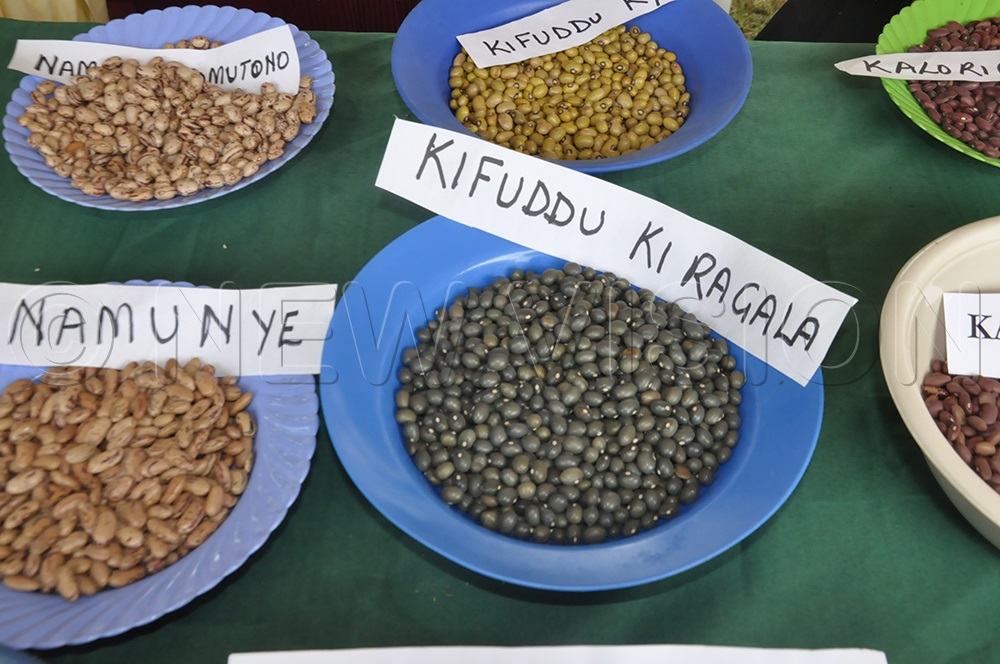MAAIF’s seed traceability system to stop counterfeit seed from getting to the market
Sep 08, 2021
Apart from tracing early generation seed, the system will help in the registration of seed crop growers, reduce physical deliveries of documents like returns in time, record amount of seed produced per season based on the quantity of early generation seed secured among others.

Most of the bad vices in seed business start from access to early generation seed;
By Prossy Nandudu and Prossy Nandudu
Journalists @New Vision
Government through the ministry of agriculture animal industry and fisheries has developed a seed traceability system that will track early generation seed so as to control counterfeits.
Early generation seed involves the breeding of improved varieties that are given to seed breeders for multiplication and supply.
This was revealed by Moses Erongu, a senior seed inspector in the ministry during the launch of African Seed Acess Index (TASAI) report for Uganda at Protea Hotel in Kampala on Tuesday. The system that was briefly interrupted by the recent lockdown due to the second wave of covid 19 is in the final stages to be rolled out.
According to Erongu, most of the bad vices in seed business start from access to early generation seed; and once such seed is certified, it becomes difficult to trace back in case it is poorly handled or counterfeited along the path.
“ We feel that when this system starts giving us that information right from the producers of early generation seed, like quantities produced, companies that took the seed for multiplication, among others, we may not expect another company to claim to have seed of the same variety when they did not access early generation seed or parent material,” said Erongu.
Apart from tracing early generation seed, the system will help in the registration of seed crop growers, reduce physical deliveries of documents like returns in time, record amount of seed produced per season based on the quantity of early generation seed secured among others.
“So knowing who has grown what, and where, will be done online and we shall be able to know the amount of seed being produced in the country .if you know how much has been planted then planning for quality assurance and inspection becomes easy, he added.
Report findings
Erongu’s revelation follows findings from the TASAI report, that indicated that in 2019, 48 cases of counterfeit seed were reported, according to information from seed companies that were interviewed . The report however adds that the 48 cases are in contrast to the 3 cases that were reported as official number of cases to government.
And the three cases of counterfeit seed were related to seed supplied to Operation Wealth Creation (OWC) using formal complaint raised by the chief administrative officers of the districts where counterfeit seeds were discovered, added the report.
According to report findings, for a case to be registered by the ministry, the complaint has to go through the formal system.
The formal system requires that a written complaint be submitted to the permanent secretary in the ministry of agriculture, who forwards to the director of crop resources, who in turn forwards to the Commissioner of the Department of Crop Inspection and Certification, who then hands it over to the Assistant commissioner or head of National Seed Certification Services for investigation.
“The lengthy procedure required when reporting cases of counterfeit or challenges in the seed sector are likely to be a disincentive for reporting both major minor cases in the seed system,” added the report.
Other challenges highlighted by the report that was carried out in 2020 with support from the Bill and Melindagates of foundation, Alliance for a Green Revolution in Africa, USAID, African Development Bank, UKaid, Government of Uganda among others include inadequate staff at the ministry to carry out seed certification and inspection.

No Comment